If the empty grocery shelves of the early pandemic taught us anything, it's that it's essential to keep a well-stocked pantry at all times. A hefty supply of non-perishable food items can offer peace of mind that you're well-prepared for a natural disaster, power outage, and other emergency situations. Plus, it makes it easy to throw together last-minute meals when you're too busy to hit the grocery store.
But if you're a healthy eater, stocking your pantry with non-perishable foods at room temperature can feel like a bit of a challenge. Everything from crackers to canned soup can be packed with unhealthy ingredients, excess sodium, and artificial preservatives. So to help you keep your shelves stocked, we've rounded up the eighteen best healthy non-perishable foods below.
These dried and canned nutritious foods offer a much longer shelf life than fresh produce, meats, and other staples on your grocery shopping list. While these shelf-stable foods are ideal for long-term food storage, they'll still need to be checked occasionally to ensure they haven't spoiled or gone rancid.
The 18 Best Non-Perishable Foods for a Healthy Pantry
Nut Butter
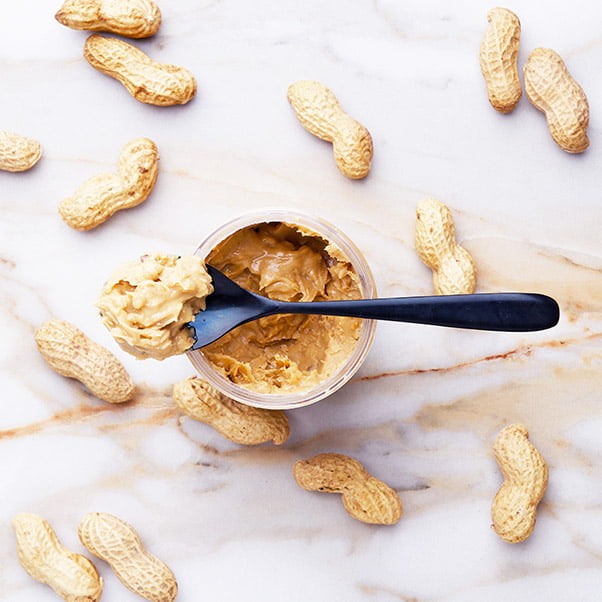
Nut butter is one of the best non-perishable foods you can have in your pantry. These nutrient-dense spreads can be slathered onto toast or fruit, stirred into yogurt, mixed into baked goods, or eaten straight off the spoon. In addition to classic peanut butter, there are a number of peanut-free foods on the market, including almond butter, sunflower spread, walnut butter, and cashew butter.
Choosing the right and healthy nut butter can be frustrating with so many brands and options. The best method to determine if the nut butter is healthy or not is to read the ingredient list. A healthy nut butter should only contain one ingredient: the nut of your choice. Skip the ones with added salt, sugar, and oils that aren't good for you.
Whole Grains
No pantry is complete without an ample supply of whole-grain products. Brown rice, quinoa, buckwheat, and other fiber-filled whole grains can bulk up grain bowls, hearty soups and stews, vegetable curries, and other last-minute dinners.
Non-Dairy Milk
Shelf-stable milk like almond milk, oat milk, and coconut milk are great non-perishable food items to have on hand— even with a container or two of fresh milk already in your fridge. Non-dairy options can be used just like traditional dairy milk to create dairy-free dishes for those with food sensitivities. Pour it over cereal, blend it into smoothies, or stir it into baked goods.
While these beverages may be shelf-stable before use, they require refrigeration once they've been opened.
Canned Beans or Dried Beans
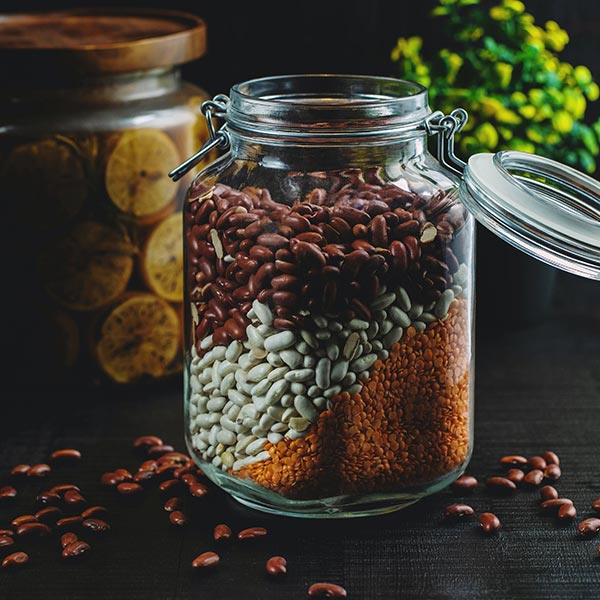
In addition to classic chili, canned beans can be added to salads, soups, bowls, and other last-minute lunches. Plus, garbanzo beans can be whipped into some delicious homemade hummus for a tasty snack.
Lentils
Lentils are packed with fiber and protein. Plus, they're easy to cook and offer an incredibly long shelf life. Thanks to their simple flavor profile, the versatile legume can be turned into an infinite amount of tasty curries, stews, salads, and fillings.
Dried Fruit
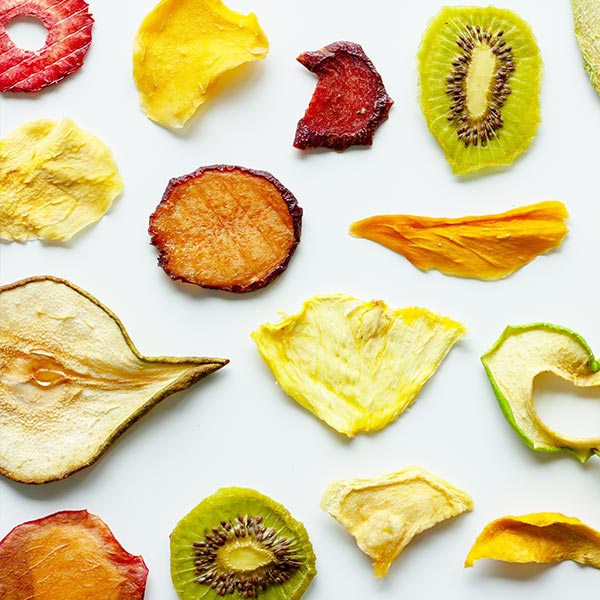
Avoid over-processed fruit leathers that are packed with added sugar, and opt for whole dried fruits instead. Dried mango, apples, and apricots make a great healthy snack between meals and help curb your late-night sweet tooth. Plus, dried cranberries and raisins can be sprinkled on top of salads and stirred into healthy baked goods.
Freeze-Dried Fruit
Freeze-dried foods aren't just for astronauts and doomsday preppers. While dehydrated fruit can lose flavor and nutrients, freeze-dried food retains most of its original flavor and vitamin content.
Mix freeze-dried fruits like strawberries, bananas, apples, and berries into trail mix and baked goods. Or pop them into your mouth straight out of the bag! Their uniquely crispy texture is unlike anything else.
Canned Fish
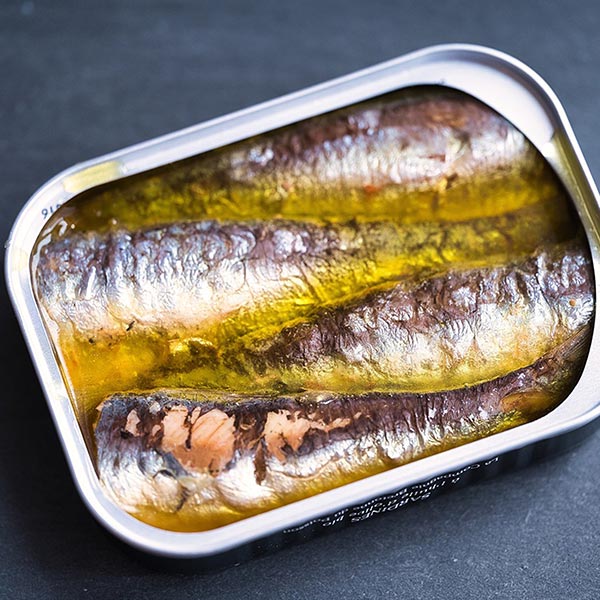
If you have trouble accessing fresh fish, canned fish are great alternatives and great non-perishable foods to have in your pantry. Canned fish can be very nutritious and even as nutritious as fresh if it's preserved correctly. Some great options include mackerel, sardines, and tuna.
Canned fish makes a great last-minute lunch on the go, especially popular canned tuna. It's packed with protein and healthy fats that support heart health and keep you satisfied for longer between meals. Spread it onto crackers or fold it into a classic tuna sandwich.
When buying canned meat, be sure to read the nutrition label and ingredient list. You want to avoid anything that contains high sodium, ingredients you can't pronounce, and preservatives (sodium nitrate and sodium nitrite). When eaten in large quantities, these two preservative ingredients can pose a serious health risk. Some of the canned fish are preserved in olive oil. If the canned fish contains olive oil, be sure it is extra virgin olive oil.
To find the healthiest canned fish, be sure to read the ingredients on the label. Choose wild-caught over farm-raised as wild-caught fish tends to have a more natural diet and higher omega-3 fatty acid content. Check for eco-labels, such as the Marine Stewardship Council (MSC) certification, which indicates that the fish was caught using sustainable methods that protect the marine ecosystem. Also seeks BPA-free cans to minimize exposure to this chemical.
If you consume fish often, consider mercury levels. Larger fish like tuna and swordfish can accumulate higher levels of mercury. If you consume canned fish frequently, consider options with lower mercury content, such as salmon or sardines.
Now, what about other canned meats? Other meat, like ham or beef, is typically highly processed and contains high sodium, fat, and other chemicals. So processed, you may not even consider them as meat. If you are looking for other non-perishable meat, try jerky instead.
Jerky
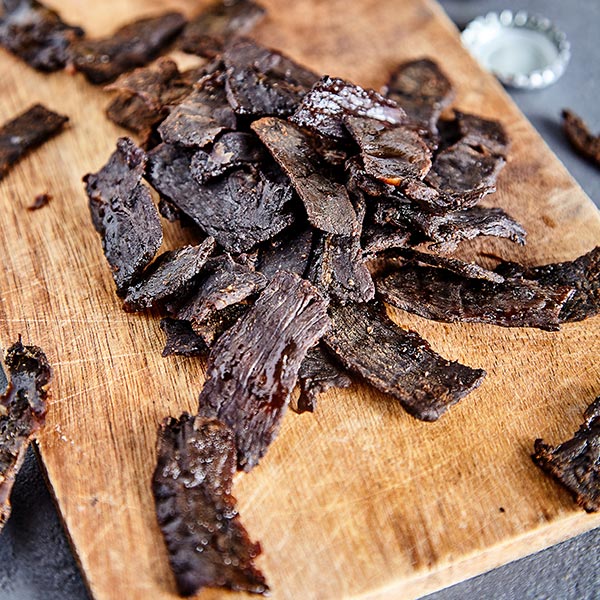
Craving something salty? Beef jerky, chicken jerky, fish jerky and turkey jerky (or a vegan jerky alternative) are one of the healthiest non-perishable foods. They make the perfect high-protein and low fat snack when you need a little energy boost. Plus, during the drying process, it preserves many of the nutrients found in meat. This makes them a great snack for hikes, camping, road trips, and other outdoor adventures.
However, not all jerky products are made alike, so be sure to look for grass-fed, free range, organic options that are made without added sugar, preservatives, or excess sodium.
Sauces and Salsas
What use are non-perishable foods like rice, beans, pasta, and lentils without some delicious sauces to enjoy with them? Tomato sauce, salsa, curry, salad dressing, and other sauces make it easy to whip up last-minute dinners instead of spending money on takeout.
Baking Mixes
Nothing beats having a box of brownies on hand when you're craving something sweet! Keeping your pantry filled with a few boxes of cake mix, pancake mix, and other baking mixes makes it easy to throw together last-minute treats for BBQs and bake sales. Healthy grocery stores should have plenty of gluten-free, high-protein, and vegan options to choose from.
Oats
Oats are one of the most versatile non-perishable foods you can keep in your pantry. The kitchen staple can be used to make a hearty bowl of oatmeal, homemade granola or muesli, and all sorts of scrumptious baked goods and breakfast treats. Avid bakers and breakfast food lovers should always keep a container of old-fashioned, steel-cut, and quick oats on hand.
Nuts and Seeds

The list of nuts and seeds worth adding to your pantry goes on and on—almonds, cashews, walnuts, peanuts, pine nuts, sunflower seeds, and pistachios. Sprinkle them into salads, bake them into cookies and muffins, shake up a batch of homemade trail mix, blend your own peanut butter, nut milk, or just grab a handful straight out of the bag.
Canned Fruit
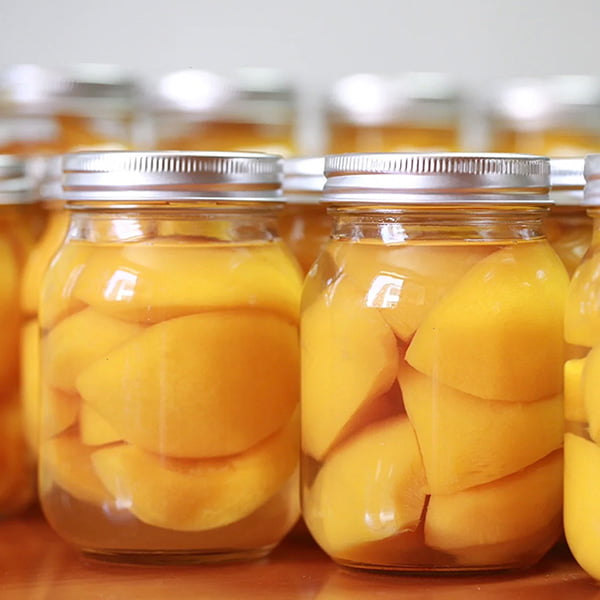
Canned food isn't on any healthy eaters' list. While canned fruit gets a bad reputation compared to fresh fruits and frozen fruits, it's still great to have on hand in case of emergency. Popular canned fruits like peaches, pears, apricots, and pineapple can be stirred into yogurt and granola or eaten on their own as a quick morning snack.
To ensure you are getting the healthiest canned fruit, be sure to check the ingredient list. The best choice is canned fruit with only the fruit itself and water or natural fruit juice. Avoid products with added sugars, syrups, or artificial sweeteners. Opt for canned fruits with "no added sugar" or "unsweetened." Also, seek BPA-free cans to minimize exposure to this chemical.
To avoid synthetic pesticides and other harmful chemicals, seek USDA organic-certified options.
Canned Vegetables
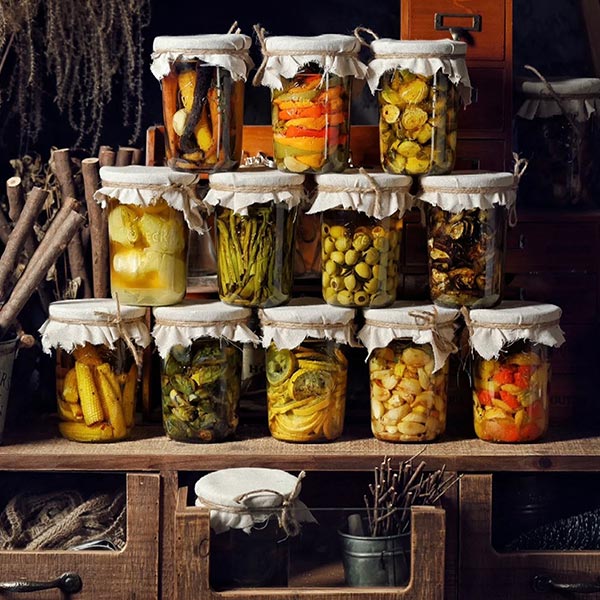
When it comes to healthy non-perishable foods, canned vegetables are an absolute must-have. From green beans and peas to corn and carrots to crushed tomatoes, these healthy canned foods can bulk up all sorts of soups, casseroles, salads, and bowls.
Remember that while canned vegetables can be convenient and have a longer shelf life, they are not a substitute for fresh vegetables in terms of taste and texture. Not to mention, not all canned vegetables are created equal.
When shopping for canned vegetables, be sure to read the ingredient label. Ideally, the label should list just the vegetable itself and the water. Avoid products with added salt, sugar, or preservatives. Look for "low sodium" or "no added salt" options, as high sodium intake can be detrimental to health, especially for individuals with hypertension or other health concerns.
When it comes to canned products, BPA is often a concern for health-conscious individuals. Bisphenol A (BPA) is a chemical found in some cans' lining, and it may leach into the food. Opt for cans labeled as BPA-free to reduce exposure to this chemical.
Granola Bars
Granola bars and protein bars are the perfect snacks on the go. They're easy to toss in your bag for a hike, travel day, or last-minute breakfast on your commute.
But healthy eaters, beware! Most conventional granola bars are packed with processed carbs and added sugar, so be sure to skim the ingredient list before you buy. The shorter the ingredient list, the better.
Pasta/Noodles
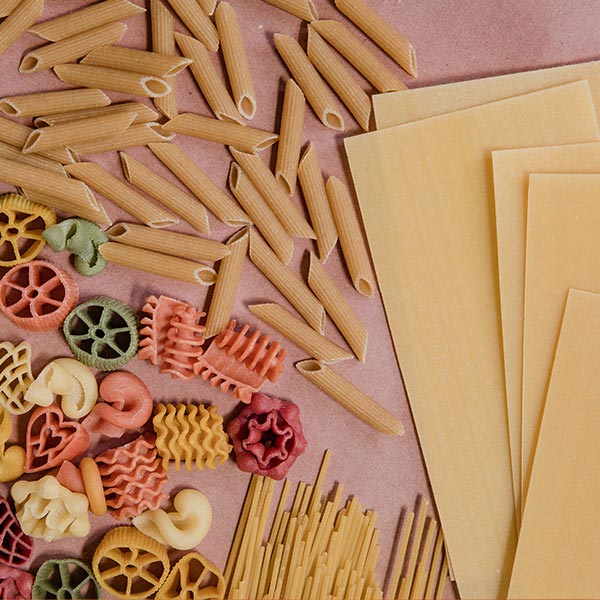
Stock your pantry with healthy whole-wheat or gluten-free pasta and a few jars of pasta sauce for easy spaghetti nights when you're short on time (or groceries). Whole wheat and gluten-free noodles like spaghetti, rotini, fettuccine, and macaroni are excellent fiber and complex carbs sources.
Canned Soup
Canned soups are a no-brainer during the colder months. While tomato soup and grilled cheese sandwiches are obvious choices, there are countless soup varieties to choose from: chili, chicken noodle, minestrone, clam chowder, tortilla, butternut squash, and more. Canned soups can be super high in sodium, so stick to low-sodium products you can season yourself.
